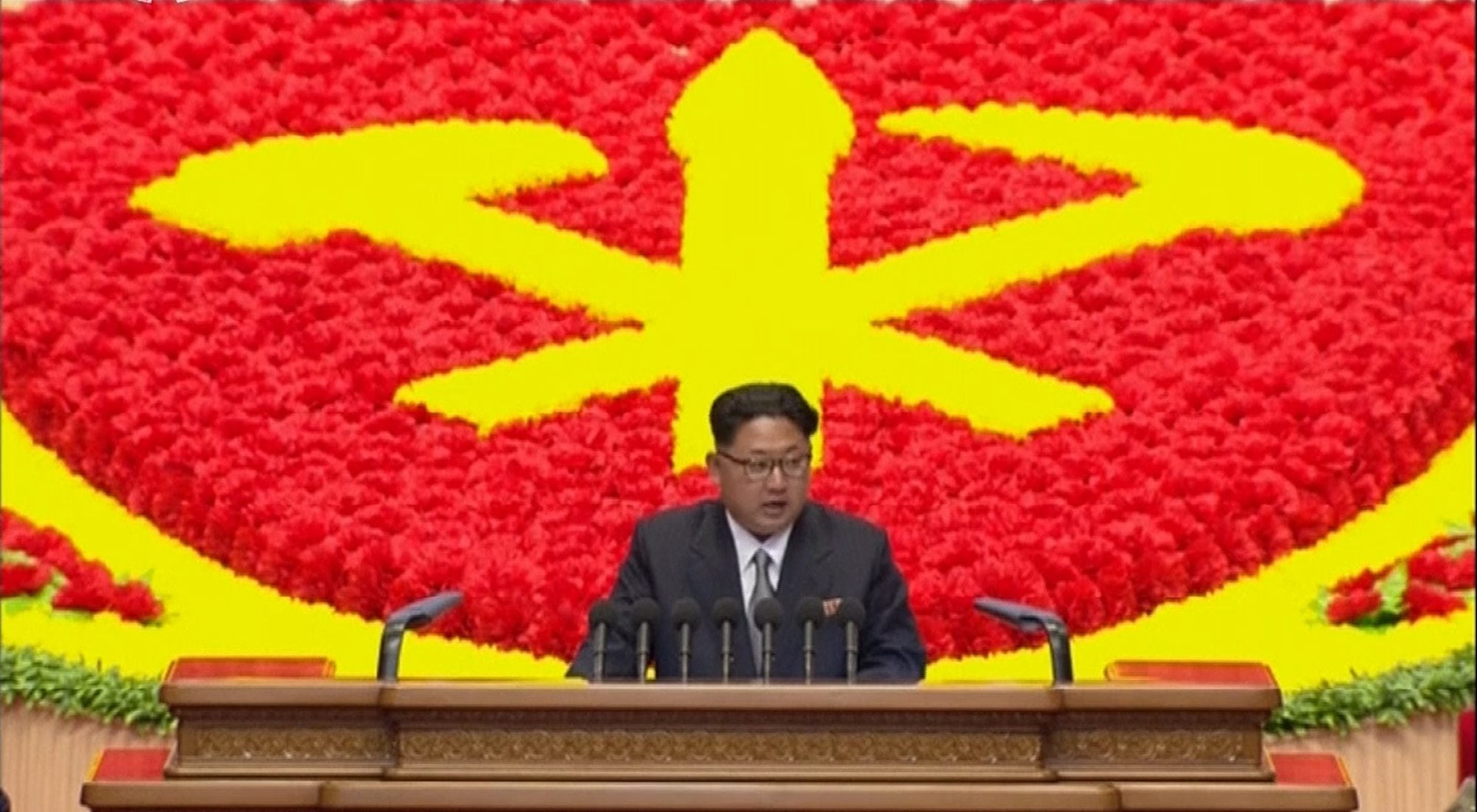Kim Jong-un says North Korea is a “responsible nuclear weapons state”
This weekend thousands of North Korean officials convened in Pyongyang to attend a rare Workers’ Party Congress, the first in nearly four decades. The nation’s leader, Kim Jong-un, struck a diplomatic tone regarding the nation’s nuclear ambitions.


This weekend thousands of North Korean officials convened in Pyongyang to attend a rare Workers’ Party Congress, the first in nearly four decades. The nation’s leader, Kim Jong-un, struck a diplomatic tone regarding the nation’s nuclear ambitions.
North Korea “will faithfully fulfill its obligation for non-proliferation and strive for global denuclearization,” he said in a three-hour speech on Saturday. “As a responsible nuclear weapons state, our republic will not use a nuclear weapon unless its sovereignty is encroached upon by any aggressive hostile forces with nukes.”
But nuclear armament remains key to the regime’s policies. During Kim’s Friday speech, he referred to the country’s apparent hydrogen bomb test in January—which many outside analysts have doubted—as an historic event.
“Our service personnel and people achieved great successes in the first hydrogen bomb test and the launch of Earth observation satellite Kwangmyo’ngso’ng 4 which served as landmarks in the nation’s history spanning 5,000 years…”
Kim’s comments come as the international community mounts pressure on North Korea over recent nuclear and missile tests. In January the regime conducted a nuclear test not far from the Chinese border city of Yanji, causing alarm in Beijing and among local residents. In March it conducted a long-range missile test that traversed most of the Sea of Japan. The actions prompted the UN to issue fresh sanctions on North Korea.
In his speech Saturday Kim also announced the first five-year economic plan for North Korea in decades. He called for improving the mechanization of agriculture, the automation of factories, and the nation’s power infrastructure, according to Reuters, though he offered no specific targets or further details. Analysts have expressed doubts over the regime’s willingness to enact meaningful economic reforms.
“The Kim regime has periodically allowed some economic changes, but these were never as extensive in scope or duration as predicted,” Bruce Klingner, a senior research fellow on North Asia at the Heritage Foundation, told the LA Times. “And the regime usually walked them back either as economic conditions improved or it feared losing control over its minions.”